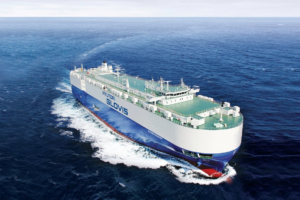A new report has revealed that while it is possible for scalable zero-emission fuels to make up 5% of international shipping fuels by 2030 – shipping’s breakthrough target – the window of opportunity will close soon, and rapid action is required from the industry.
The report from Maritime consultancy UMAS named “Climate Action in Shipping, Progress towards Shipping’s 2030 Breakthrough,” suggests that shipping needs to take rapid action to achieve 5% zero-emission fuel target by 2030.
In accordance with the new report released, zero-emission fuel production currently in the pipeline could end up covering just a quarter of the fuel needed to deliver the breakthrough. However, if more projects are successful, zero-emission fuel production could be up to twice as much as is needed, even when accounting for other sectors’ fuel needs.
On vessels, the picture is less rosy. Despite headline-grabbing orders for methanol-fuelled ships, continuing the current trajectory of orders might only deliver one-fifth of the needed vessels to achieve the breakthrough target.
Dr Domagoj Baresic, research associate at UCL, consultant at UMAS, and lead author of the report said: “The last 12 months have seen a positive shift in maritime decarbonisation efforts. Now is the time to see strong progress in terms of commitment for zero carbon fuels and freight from the industry so that the needed rapid scale-up of these fuels in the energy mix is achieved.”
Major progress has been achieved with the adoption of an ambitious greenhouse gas (GHG) emissions reduction strategy by the International Maritime Organization (IMO), which will be followed in 2025 by the adoption of concrete global measures to achieve the strategy’s goals.
Because these measures are to be implemented after 2027, industry and national governments will need to make concerted, immediate efforts to stimulate supply and demand in the intervening period and ensure that the industry is prepared to deliver on the IMO strategy before 2030.
Launched in conjunction with the Global Maritime Forum’s Annual Summit in Athens, the report assesses progress towards the goal of having scalable zero-emission fuels account for 5% of international shipping fuels by 2030. This is the threshold needed to rapidly scale the uptake of such fuels and achieve full decarbonisation by at least 2050.
Notably, the recently revised IMO strategy includes a new level of ambition and sets an important target of at least 5% – striving for 10% – uptake of zero or near-zero GHG emission fuels by 2030.
The report indicates that financing for achieving the breakthrough is partially on track, with the amount of shipping finance covered by the Poseidon Principles surpassing US$200 billion and the climate alignment of these investments improving from 4% to 6% on a weighted average basis.



